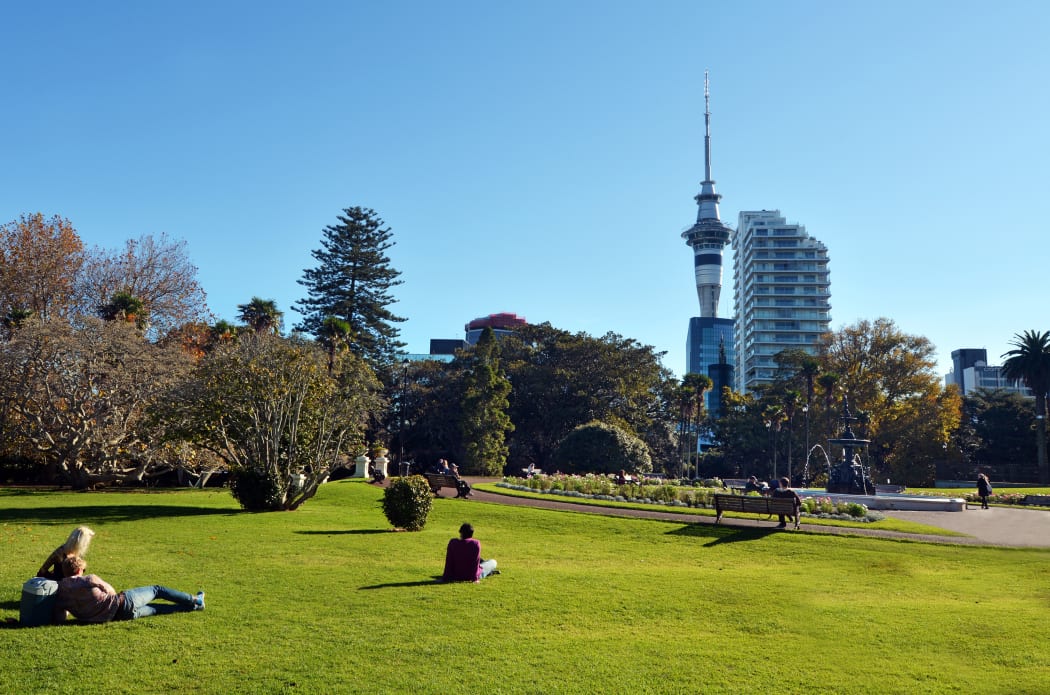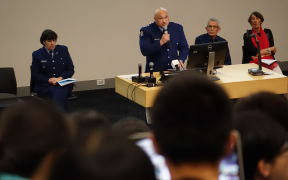A tour guide for Chinese tourists is fielding more and more questions from customers about whether New Zealand is safe to visit.

Tour guide Lynn Mi said, for the first time, she felt she needed to advise people to avoid places like Auckland's Albert Park (pictured). Photo: 123RF
A Chinese-made anti-crime advertisement that said New Zealand was becoming a criminal paradise has been clicked on more than 15,000 times in the social media platform WeChat since its release on Saturday.
The video weaves together the voices of people from varying ethnic backgrounds expressing fear of violent attacks on ethnic minorities in New Zealand.
They are pleading with the government to do more to curb crime.
Tour guide Lynn Mi, who has been working as a tour guide for Chinese visitors for three years, said people were becoming more apprehensive.
More customers were saying they had heard from friends and family who have worked and studied in New Zealand that it was not safe to go out at night.
Ms Mi said her own 86-year-old mother was robbed of her money and jewellery in the Auckland suburb of New Lynn and police were yet to find the culprits.
For the first time she was having to advise customers not to walk at night, to avoid parks and not to put their belongings down, she said.
"We can only warn the customers 'don't go somewhere, don't go to Albert Park'," she said.
It was up to the government to change the situation for those being targeted, she said.
Ms Mi said she thought Chinese tourists were targeted because there was a false belief they carried cash.
Shanghai-based marketing company China Skinny managing director Mark Tanner said 15,000 video views on WeChat was small by China's standards.
The video could, however, damage New Zealand's positive tourism image and there could be "wide-reaching effects" if it went viral, he said.
He drew a parallel with a situation in Australia involving the assault of Indian students in 2010.
"Australia's reputation in India took a real hammering," Mr Tanner said.
Social media had been adopted with more vigour in China, making it particularly influential.
"For them it is, in many cases, the most trusted channel.
"It is their peers, it's them talking about things they may not hear in the government media, so it is very influential and if things get off on the wrong foot, they can be very difficult to stop."
The best policy would be for New Zealand to remain transparent about any issues, he said.
Perception vs reality
Victoria University of Wellington tourism professor Ian Yeoman said the perception of how bad crime was did not match the facts.
"We've always had a fear of crime, and always thought it's getting worse," Dr Yeoman said
"Fundamentally, this social media video ... is a mismatch between fact and reality."
Dr Yeoman said crime rates were reducing in New Zealand, but the government needed to actively dispel myths.
"It's about good communication ... in terms of communicating facts of safety, communicating facts of crime and crime-related facts about tourists."
Tourism Industry Aotearoa Chief Executive Chris Roberts released a written statement about the video.
"New Zealand is generally regarded as a safe destination for all visitors. It is unlikely this video will have any impact on our international reputation."
Tourism New Zealand declined RNZ's requests for comment.






